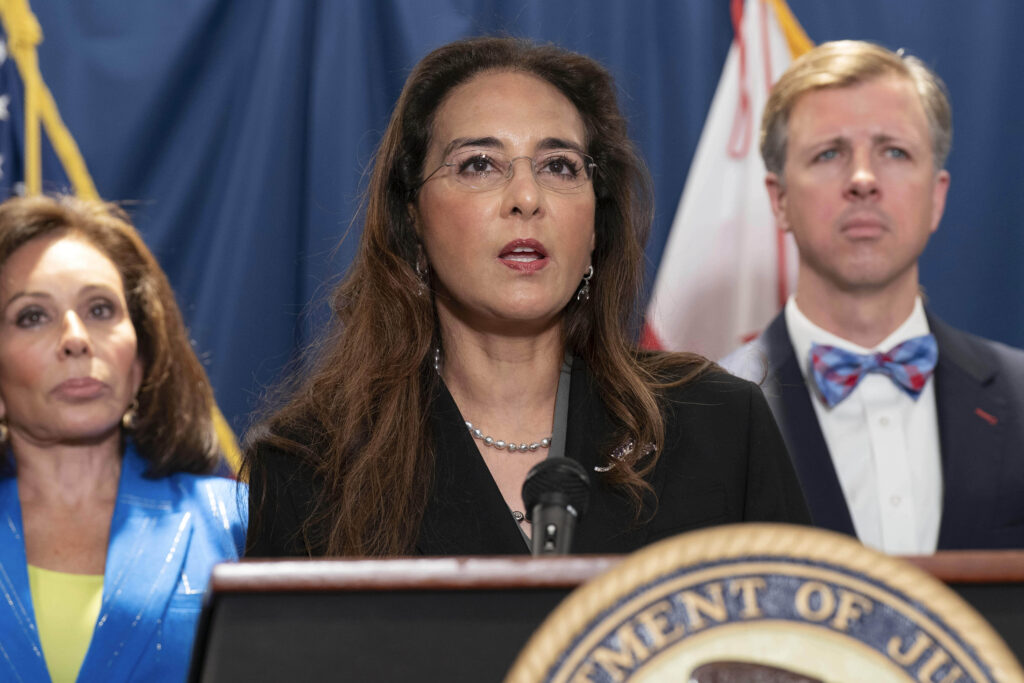DOJ Sues Maine, Oregon in Aggressive Move to Seize State Voter Data

The U.S. Department of Justice filed lawsuits against Maine and Oregon Tuesday, escalating its campaign to obtain sensitive voter registration data from states across the country.
The unprecedented legal action marks a major turning point in the department’s effort to force states to turn over unredacted voter rolls and list maintenance records.
“States simply cannot pick and choose which federal laws they will comply with,” Assistant Attorney General Harmeet K. Dhillon of the DOJ’s Civil Rights Division said in a press release. “The refusal of certain states to protect their citizens against vote dilution will result in legal consequences.”
The DOJ claims that Maine and Oregon violated the National Voter Registration Act, the Help America Vote Act and the Civil Rights Act of 1960 by refusing to provide full electronic copies of their statewide voter registration lists and related maintenance data.
Maine Secretary of State Shenna Bellows (D) blasted the DOJ’s lawsuit as an abuse of power and an attempt to strong-arm states into handing over sensitive voter data.
“It is absurd that the Department of Justice is targeting our state when Republican and Democratic secretaries all across the country are fighting back against this federal abuse of power just like we are,” Bellows said in a statement assuring that Maine has some of the best-run elections. “I stand by the integrity and professionalism of Maine’s dedicated state election officials.”
Bellows flatly denied the DOJ’s claim that Maine shared the same information with a private organization, saying “it is a lie.”
Oregon Secretary of State Tobias Read (D) also condemned the DOJ’s actions, defending his office’s commitment to voter privacy.
“If the President wants to use the DOJ to go after his political opponents and undermine our elections, I look forward to seeing them in court,” Read said in a statement. “I stand by my oath to the people of Oregon, and I will protect their rights and privacy.”
The lawsuits against Maine and Oregon follow similar rejections or partial denials from several states, including New Hampshire, Illinois, Minnesota, Utah, Rhode Island, Arizona and Washington State.
In each case, state officials cited legal limits, privacy protections or cybersecurity risks.
Election officials are uniting to oppose what they see as federal overreach in their elections.
If federal courts side with the DOJ, it could set a precedent forcing states to hand over extensive and sensitive voter data.